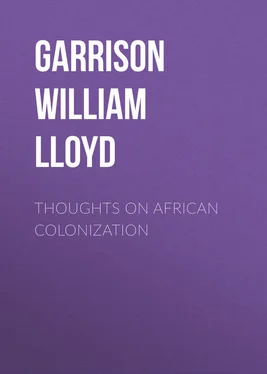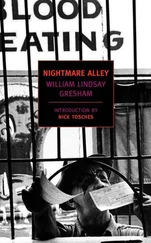William Garrison - Thoughts on African Colonization
Здесь есть возможность читать онлайн «William Garrison - Thoughts on African Colonization» — ознакомительный отрывок электронной книги совершенно бесплатно, а после прочтения отрывка купить полную версию. В некоторых случаях можно слушать аудио, скачать через торрент в формате fb2 и присутствует краткое содержание. Жанр: История, foreign_antique, foreign_prose, на английском языке. Описание произведения, (предисловие) а так же отзывы посетителей доступны на портале библиотеки ЛибКат.
- Название:Thoughts on African Colonization
- Автор:
- Жанр:
- Год:неизвестен
- ISBN:нет данных
- Рейтинг книги:4 / 5. Голосов: 1
-
Избранное:Добавить в избранное
- Отзывы:
-
Ваша оценка:
- 80
- 1
- 2
- 3
- 4
- 5
Thoughts on African Colonization: краткое содержание, описание и аннотация
Предлагаем к чтению аннотацию, описание, краткое содержание или предисловие (зависит от того, что написал сам автор книги «Thoughts on African Colonization»). Если вы не нашли необходимую информацию о книге — напишите в комментариях, мы постараемся отыскать её.
Thoughts on African Colonization — читать онлайн ознакомительный отрывок
Ниже представлен текст книги, разбитый по страницам. Система сохранения места последней прочитанной страницы, позволяет с удобством читать онлайн бесплатно книгу «Thoughts on African Colonization», без необходимости каждый раз заново искать на чём Вы остановились. Поставьте закладку, и сможете в любой момент перейти на страницу, на которой закончили чтение.
Интервал:
Закладка:
'That upon due consideration of the said memorial, and from all other information which your committee has obtained, touching that subject, they are fully satisfied that no jealousies ought to exist, on the part of this or any other slaveholding State, respecting the objects of this Society, or the effects of its labors.' – [Report of a committee of the Legislature of Delaware, Feb. 8th, 1827.]
'The Society has reiterated the declaration that it has no ulterior views diverse from the object avowed in the constitution; and having declared that it is in nowise allied to any Abolition Society in America or elsewhere, is ready whenever there is need to pass a censure upon such Societies in America.' – [Speech of Mr Harrison of Virginia. – Eleventh Annual Report.]
'We have the same interests in this subject with our southern brethren – the same opportunity of understanding it, and of knowing with what care and prudence it should be approached. What greater pledge can we give for the moderation and safety of our measures than our own interests as slaveholders, and the ties that bind us to the slaveholding communities to which we belong?' – [Speech of Mr Key. – Same Report.]
'The second objection may be resolved into this; that the Society, under the specious pretext of removing a vicious and noxious population, is secretly undermining the rights of private property. This is the objection expressed in its full force, and if your memorialists could for a moment believe it to be true in point of fact, they would never, slaveholders as they are , have associated themselves together for the purpose of co-operating with the Parent Society; and far less would they have appeared in the character in which they now do, before the legislative bodies of a slaveholding State. And, if any instance could be now adduced, in which the Society has ever manifested even an intention to depart from the avowed object, for the promotion of which it was originally instituted, none would with more willingness and readiness withdraw from it their countenance and support. But, from the time of its formation, down to the present period, all its operations have been directed exclusively to the promotion of its one grand object, namely, the colonization in Africa of the free people of color of the United States. It has always protested, and through your memorialists it again protests, that it has no wish to interfere with the delicate but important subject of slavery. It has never, in a solitary instance, addressed itself to the slave. It has never sought to invade the tranquillity of the domestic circle, nor the peace and safety of society.' – [Memorial of the Auxiliary Colonization Society of Powhatan, to the Legislature of Virginia. – Twelfth Annual Report.]
'Therefore she looked, and well might she look, to colonization and to colonization alone. To abolition she could not look , and need not look. Whatever that scheme may have done, heretofore, in the States now free, it had done nothing and could do nothing in the slave States for the cause of humanity. This subject he rejoiced to know was now better understood, and all began to see that it was wiser and safer to remove, by colonization, a great and otherwise insuperable impediment to emancipation, than to act upon the subject of emancipation itself .' – [Speech of Mr Key. – Thirteenth Annual Report.]
'Our Society has nothing to do directly with the question of slavery.' * * * 'Whilst the Society protests that it has no designs on the rights of the master in the slave – or the property in his slave, which the laws guarantee to him,' &c. – [Speech of Gerrit Smith, Esq. – Fourteenth Annual Report.]
'Its primary object now is, and ever has been, to colonize, with their own consent, free people of color on the coast of Africa, or elsewhere, as Congress may deem expedient. And, Sir, I am unwilling to admit, under any circumstances, and particularly in this Hall, that it ever has swerved from this cardinal object.' – [Speech of Mr Benham. – Fourteenth Annual Report.]
'Something he must yet be allowed to say, as regarded the object the Society was set up to accomplish. This object, if he understood it aright, involved no intrusion on property , NOR EVEN UPON PREJUDICE.' – [Speech of Mr Archer of Virginia. – Fifteenth Annual Report.]
'That the effort made by the Society should be such as to unite all parts of the country – such as to be in any degree ultimately successful, it was necessary to disclaim all attempts for the immediate abolition of slavery, or the instruction of the great body of the blacks . Such attempts would have excited alarm and jealousy, would have been inconsistent with the public safety, and defeated the great purposes of the Society.' * * * 'It is pleasing to learn that the Friends, who at first were not favorable to the Society, having been inclined to the immediate abolition of slavery , are coming into what we deem the more wise policy of encouraging emancipation by colonization.' – [Speech of Harmanus Bleecker, Esq. at the Second Anniversary Meeting of the New-York Colonization Society, April 14, 1831.]
'The plan of colonization seems the only one entitled to the least consideration .' – [Speech of M. C. Paterson, Esq. on the same occasion.]
'Nor will their brethren of the North desire to interfere with their constitutional rights, or rashly to disturb a system interwoven with their feelings, habits, and prejudices. A golden mean will be pursued, which, at the same time that it consults the wishes , and respects the prejudices of the South, will provide for the claims of justice and Christianity, and avert the storm of future desolation.' – [Speech of Lucius Q. C. Elmer, Esq. – First Annual Report of the New-Jersey Colonization Society.]
'Views are attributed to us, that were never entertained, and our plan is tortured into a design to emancipate the Slaves of the South . We are made to disregard this description of property, and to touch without reserve the rights of our neighbors. We are said to tread this almost forbidden ground with firm step, and a hardihood of effort is imputed to us, which, if true, might well excite the indignation of our southern citizens. – But, Sir, our Society and the friends of colonization wish to be distinctly understood upon this point. From the beginning they have disavowed , and they do yet disavow , that their object is the emancipation of the slaves . They have no wish, if they could , to interfere in the smallest degree with what they deem the most interesting and fearful subject which can be pressed upon the American public.' * * * 'There is no people that treat their slaves with so much kindness and with so little cruelty. Nor can I believe that we shall meet with any serious opposition from that quarter, when our object is distinctly understood – when it is known that our operations are confined exclusively to the free black population. That this is our sole object, I appeal with entire confidence to the constitution of our Society and to the constitution and Annual Reports of the Parent Institution.' * * * 'We again repeat – that our operations are confined to the free black population, and that there is no ground for fear on the part of our southern friends. We hold their slaves as we hold their other property, SACRED. Let not then this slander be repeated.' – [Speech of James S. Green, Esq. on the same occasion.]
'Nothing has contributed more to retard the operations of the Colonization Society than the mistaken notion that it interferes directly with slavery. This objection is rapidly vanishing away, and many of the slaveholding States are becoming efficient supporters of the national society. In the Senate of Louisiana during its last session, resolutions were adopted expressive of the opinion that the object of this Society was deserving the patronage of the general government. An enlightened community now see, that this Society infringes upon no man's rights, that its object is noble and benevolent – to remedy an evil which is felt and acknowledged at the north and south – to give the free people of color the privileges of freemen.' – [From a Tract issued by the Massachusetts Colonization Society in 1831, for gratuitous distribution.]
Читать дальшеИнтервал:
Закладка:
Похожие книги на «Thoughts on African Colonization»
Представляем Вашему вниманию похожие книги на «Thoughts on African Colonization» списком для выбора. Мы отобрали схожую по названию и смыслу литературу в надежде предоставить читателям больше вариантов отыскать новые, интересные, ещё непрочитанные произведения.
Обсуждение, отзывы о книге «Thoughts on African Colonization» и просто собственные мнения читателей. Оставьте ваши комментарии, напишите, что Вы думаете о произведении, его смысле или главных героях. Укажите что конкретно понравилось, а что нет, и почему Вы так считаете.












